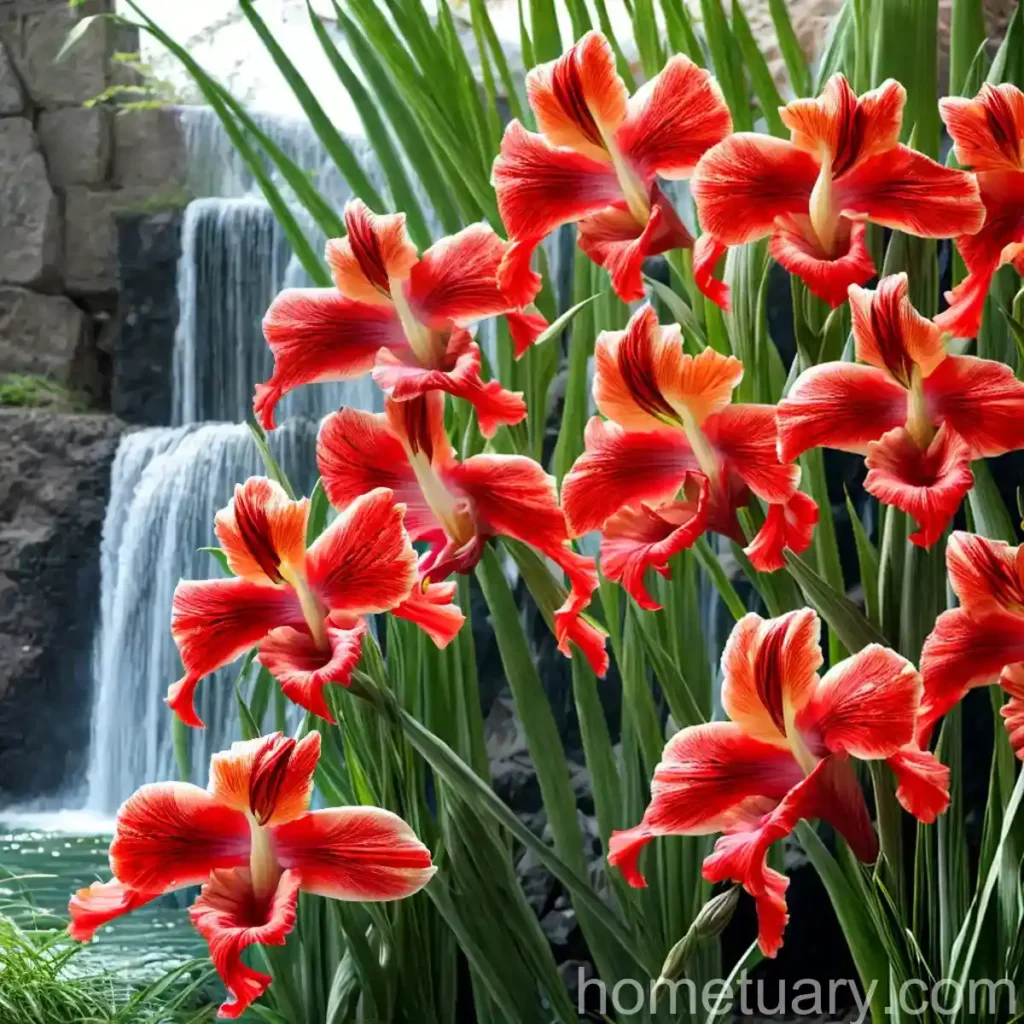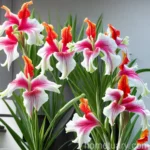The Wonderful Waterfall Gladiolus (Gladiolus cardinalis)
What is Plant: Waterfall Gladiolus (Gladiolus cardinalis)
The waterfall gladiolus, scientifically known as Gladiolus cardinalis, is a captivating flowering plant that belongs to the Iridaceae family. This striking plant is native to the eastern parts of South Africa, where it thrives in the wild with its vibrant floral spikes. The waterfall gladiolus is recognized for its long, vertical flower spikes adorned with brilliant scarlet, tubular flowers that attract pollinators and elevate the visual appeal of gardens and landscapes.
Key Takeaways on Waterfall Gladiolus (Gladiolus cardinalis)
Culture
Waterfall gladiolus (Gladiolus cardinalis) is a delightful addition to gardens and landscapes, adding vivid color and vertical interest. This plant is relatively easy to grow, making it an excellent choice for both novice and experienced gardeners. Its vibrant flowers make it an eye-catching feature in a garden setting.
Uses
Waterfall gladiolus (Gladiolus cardinalis) is commonly utilized for ornamental purposes, adding beauty to gardens, borders, and flower arrangements. Its eye-catching flowers and striking appearance contribute to its popularity as a decorative plant.
Water
Moderate watering is vital for the growth and development of the waterfall gladiolus. Adequate moisture helps in the establishment of its root system and promotes healthy blooming.
Sunlight
Waterfall gladiolus thrives in full sun to partial shade. Placing it in a location with ample sunlight will ensure optimal growth and flowering.
Fertilizer
A well-balanced fertilizer application in spring encourages robust growth and abundant flowering. Choosing a fertilizer specifically formulated for flowering plants can benefit the waterfall gladiolus.
Soil
This plant thrives in well-draining, moderately fertile soil. It’s important to avoid waterlogged conditions to prevent root rot and other soil-related issues.
Pruning
Regular deadheading and removal of spent blooms can prolong the flowering period and maintain the plant’s aesthetic appeal.
Propagation
Waterfall gladiolus (Gladiolus cardinalis) can be propagated from corms, offering an opportunity to expand your collection or share these stunning plants with fellow gardening enthusiasts.
Container Popularity
Due to its striking appearance and manageable size, the waterfall gladiolus is also popular for container gardening, allowing individuals with limited space to enjoy its beauty.
Common Diseases
The waterfall gladiolus is susceptible to certain diseases, including botrytis and rust, which should be monitored and addressed promptly to ensure the plant’s health.
Common Pests
Like many plants, the waterfall gladiolus can be affected by pests such as thrips and aphids. Regular monitoring and appropriate pest management measures are essential to protect the plant.
Botanist’s Tips
Observing the growth habits and unique characteristics of the waterfall gladiolus can enhance your understanding and appreciation of this captivating plant.
Fun Facts
This section will feature interesting and lesser-known facts about the waterfall gladiolus, adding an entertaining aspect to the blog post.
Links to External Resources
I will include relevant and credible external resources about the waterfall gladiolus to provide readers with additional insights and guidance.
Conclusion
The waterfall gladiolus (Gladiolus cardinalis) is a remarkable plant that adds vibrancy and elegance to gardens and landscapes. By understanding its cultural requirements, uses, and care guidelines, individuals can cultivate and appreciate this stunning plant in various settings.
With the introduction and key takeaways set, I will now proceed to provide detailed information on each of the specified Keywords for your blog post.















